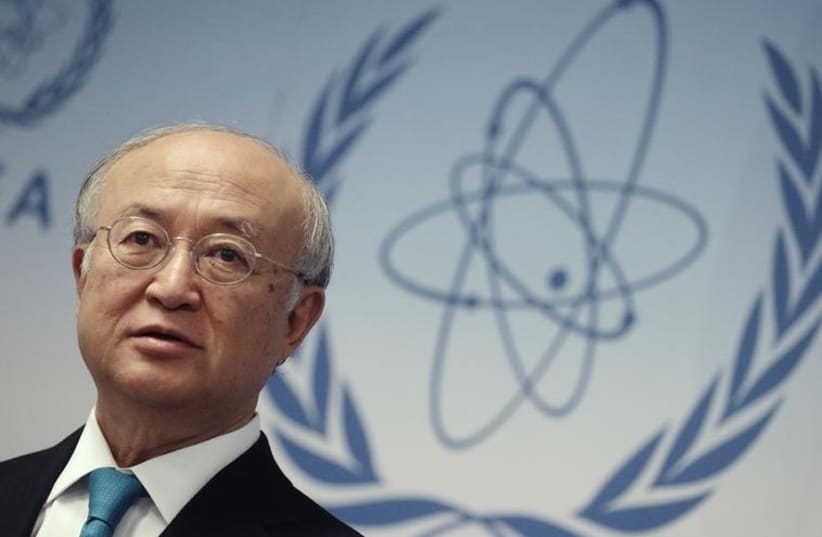An Arab initiative to single out the Jewish state for criticism was defeated in voting last year. But Western diplomats opposed to the Arab move said the unresolved Gaza conflict may influence any wavering countries at this year's debate, although there was no direct link between the issues.
"It is all about getting out the undecided vote. And it will be all about Israel widely and not about the actual nuclear issue," one Vienna-based diplomat said. "I would expect ongoing conflict to lead many (Arabs and any others critical of Israel) to want to lash out in any forum available."
Israel and Palestinian militants who dominate Gaza have been fighting for most of the past six weeks. Over 2,000 Palestinians have been killed to 67 on the Israeli side, and Israeli shelling has destroyed wide areas of the small enclave.
An Arab resolution on what it calls Israeli Nuclear Capabilities would be non-binding even if it were to be approved by the Sept. 22-26 General Conference of the International Atomic Energy Agency (IAEA). However, lobbying by both sides underlines its symbolic significance as well as deep divisions.
Israel is believed to possess the Middle East's only nuclear arsenal, drawing frequent condemnation by Arab countries and Iran which say it threatens regional peace and security.
US and Israeli officials - who see Iran's atomic activity as the main proliferation threat - have said a nuclear arms-free zone in the Middle East cannot become a reality until there is broad Arab-Israeli peace and Tehran curbs its program.
Israel's ambassador to the IAEA denounced a request by 18 Arab states for the issue of her country's capabilities to be put on the agenda of this year's IAEA conference as "cynical".
In a clear reference to Iran among others, Merav Zafary-Odiz added in a letter to IAEA Director General Yukiya Amano:
"It is important to recall that the most significant threats to the non-proliferation regime ... stem from Middle Eastern countries that pursued or continue to pursue nuclear weapons under the cover of the NPT (nuclear Non-Proliferation Treaty)."
Iran, unlike Israel an NPT signatory, denies accusations that it has been working to develop an atomic bomb capability. It is now negotiating with six world powers, including the United States, to end the dispute over its nuclear programme.
The Arab countries, also in a letter to Amano, said that Israel "possesses nuclear capabilities which are undeclared and not subject to international control, thus constituting a permanent threat to peace and security in the region."Last year, they submitted a resolution on Israel to the gathering in Vienna for the first time since 2010 to signal their frustration at the lack of movement in efforts to ban nuclear bombs and other weapons of mass destruction in the volatile region. But it was rejected by an eight-vote margin.
